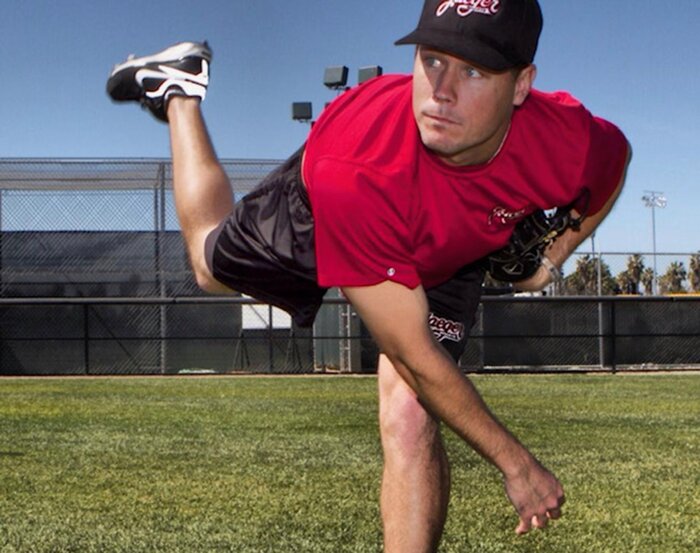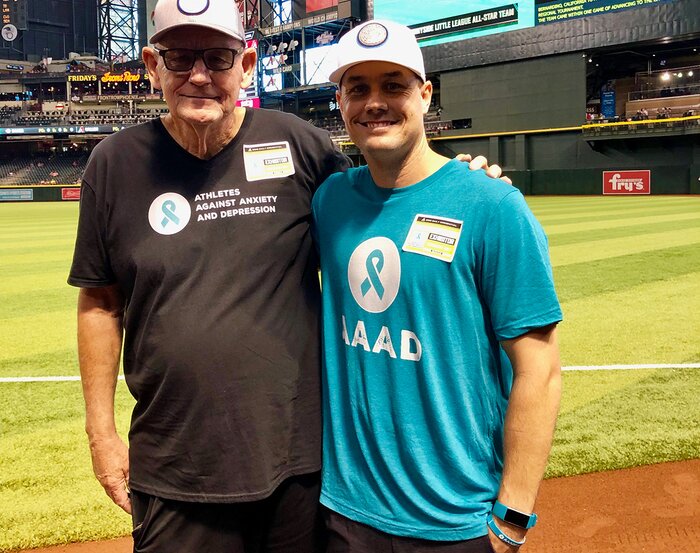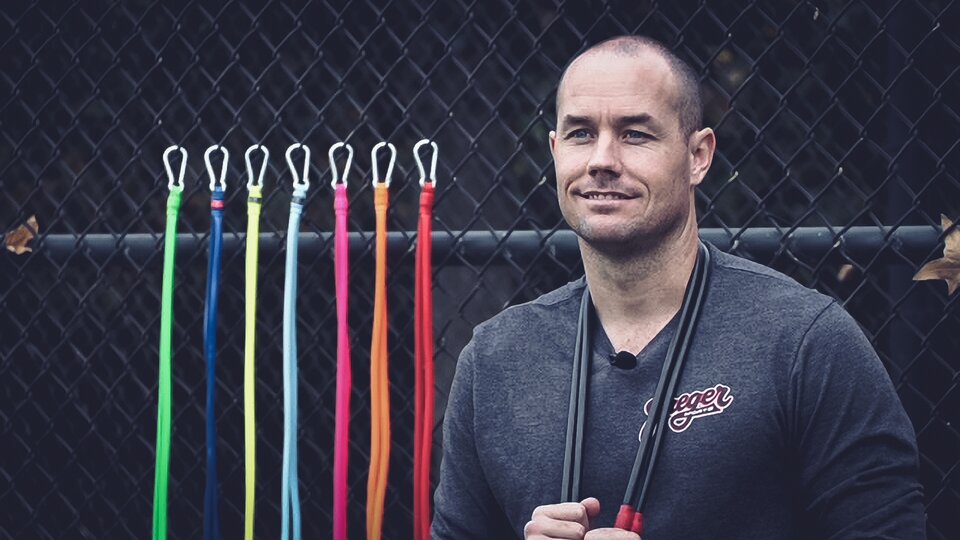Main | Anthony Fuhrman: Vulnerability is Strength | Emily Plajer: Mental Health Takes Center Stage | China McCarney: Changing the Future
China McCarney is the vice president of Jaeger Sports, an athletic and physical and mental training company. He’s also the founder of the Athletes Against Anxiety and Depression foundation, whose mission is to create a platform where people who are struggling can share their story without judgment.
The mission is near and dear to McCarney’s heart. As a young baseball player, McCarney struggled to hide his anxiety from teammates, coaches, and scouts. After fighting against it for years, McCarney finally made the decision to embrace his anxiety and instead focus his energy on breaking down the stigma against mental health in athletics.
Here is his story. —H.E.
I played all sports up through high school, but I focused on baseball. That was kind of my identity. Junior year in college is the biggest year to be drafted for baseball. That’s when I had my first full-blown panic attack.
I thought I was having a heart attack.
I was driving and I started to get short of breath. My vision became blurry and almost shaky, and my adrenaline shot through the roof. I could feel myself getting ready to pass out.
I pulled off to the side of the road and got out. I had to call my dad, who drove two hours to come get me and take me to the hospital. They did the tests and they told me it was a panic attack. I was angry. I was a competitor, and there’s no way my mind was doing this to me. But it was.
Hiding From the Problem
For six years, I hid my anxiety from everybody because I didn’t want to be viewed as weak by professional scouts, my teammates, or my friends and family.
I turned to alcohol to self-medicate. That was one way that I could turn my brain off and feel normal for a few hours. Alcohol was one of my big coping mechanisms, which was unhealthy.
In 2015 I hit my rock bottom. I had ordered some to-go food and I couldn’t go in the restaurant to grab the food because of my panic attack. I was like, ”I can’t do this anymore, I need help.” That’s when I reached out and got therapy.
I wish I could say I had a panic attack and decided to face it head on the next day, but it was a process. That’s why I’m so passionate about helping people get help now: I would love to get those six years back.

Developing Skills to Cope
As an athlete, you’re so prepared physically for fatigue and adversity. Why not develop the same strength mentally? Accepting failure and dealing with failure is a skill you can work on.
Every once in a while, mentally visualize not making the play or failing, and then visualize handling it the way you would want in that moment. It’s like doing mental reps to equip yourself to handle that situation a little bit differently.
Treat It Like an Injury
If I had a player in front of me who was on the fence about needing help, I would just compare it to a physical injury, because all athletes can relate to that. You wouldn’t judge yourself for icing a sprained ankle. Anxiety or depression, that’s just an injury in your mind and you just need to put ice on there, which is therapy.
It takes courage to go to the coach and tell them what you’re dealing with. More and more teams just need to have somebody break the ice at the beginning of the year and let the athletes know there are resources available.

Helping Leaders Take the Lead
I think a lot of coaches and parents get nervous about talking about it because they feel like they have to be a psychologist in order to talk about mental health. That couldn’t be further from the truth. It’s just about being human.
If a coach or leader sees talking about mental health as weakness, I say look, you may not ever deal with this, and I envy you if that’s the case. But I guarantee you someone you love in your life at some point is going to deal with it. Have compassion and grace.
Everybody’s going to face some sort of adversity, and the number one goal of a coach or leader is to help your people evolve into better human beings.
Learn more about other athletes like McCarney who are managing their anxiety and depression and speaking up about mental health.
For resources regarding anxiety and depression, visit the website of the Anxiety and Depression Association of America: https://adaa.org/
If you or someone you know is experiencing suicidal thoughts, please reach out for help. Call the National Suicide Prevention hotline at 1-800-273-8255 or visit their website at suicidepreventionlifeline.org.

